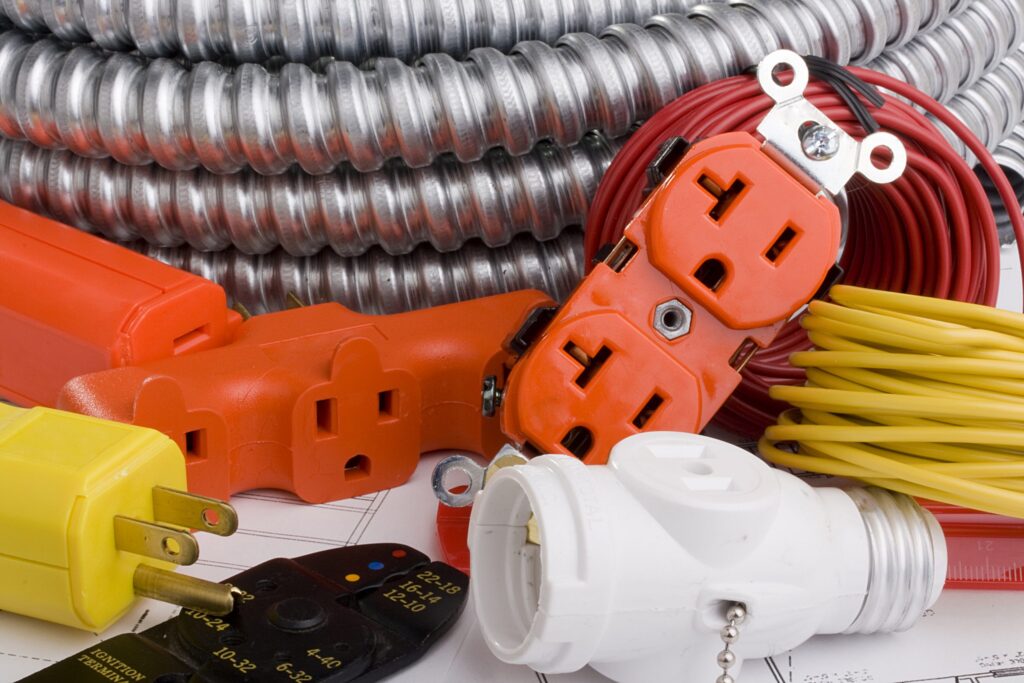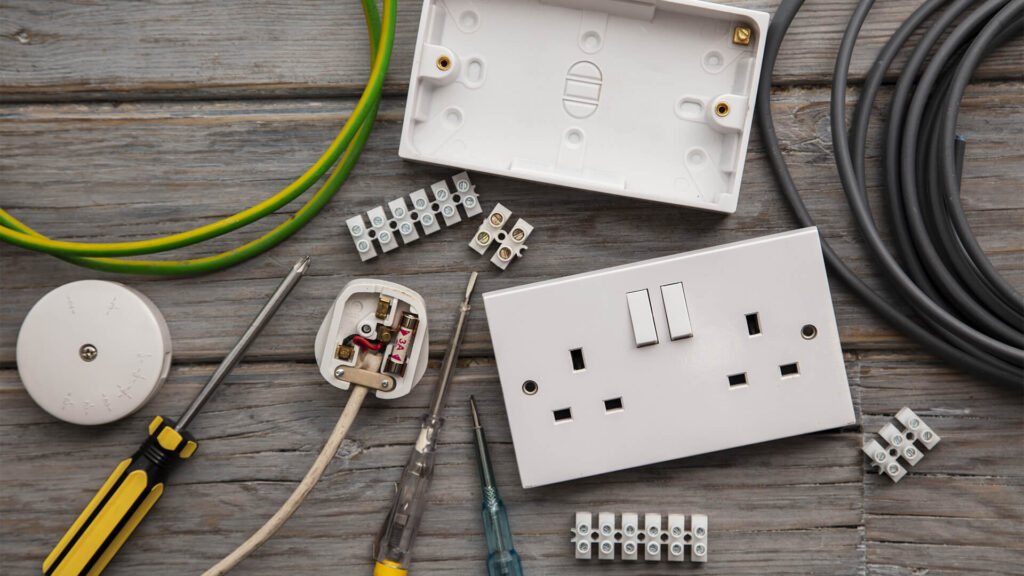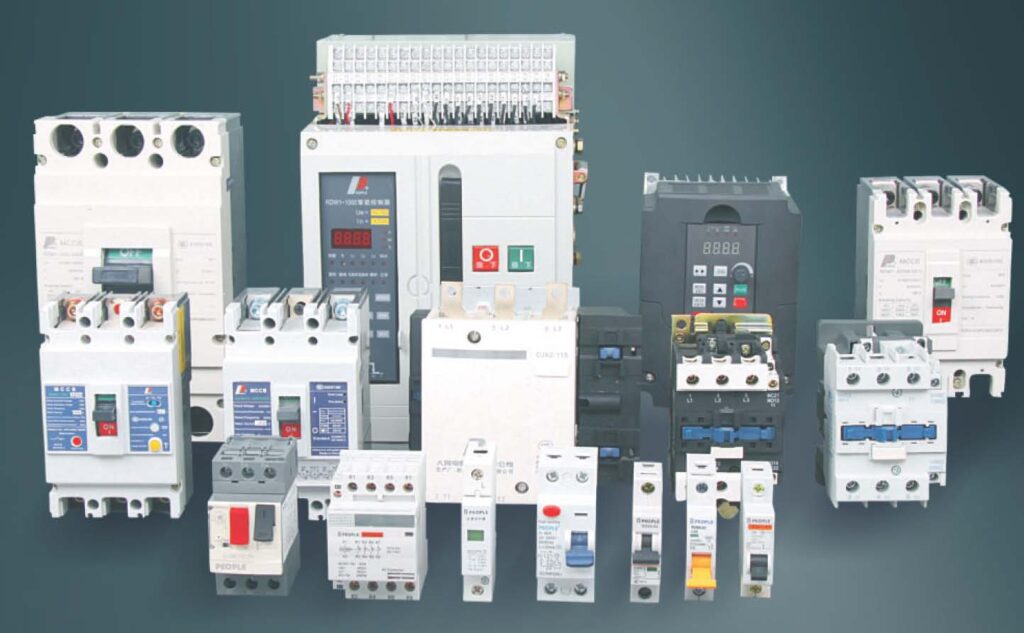If you’re planning to tackle some DIY electrical projects, it’s important to have the right tools and supplies on hand. In this ultimate guide, we’ll walk you through the basics of electrical supplies, essential tools you’ll need, tips for selecting the right components, organizing your supplies, and where to purchase quality electrical supplies.
Understanding the Basics of Electrical Supplies
Electrical supplies play a crucial role in DIY projects, as they are the building blocks that enable you to create and maintain electrical systems. From wiring and cables to switches and outlets, these supplies are essential for any electrical installation or repair.
When it comes to electrical supplies, there is a wide range of options available. Different projects require different types of supplies, and understanding their purpose and functionality is key to successfully completing any electrical task.
For example, when it comes to wiring, there are various types of cables to choose from. Each cable has its own specifications and is designed for specific purposes. Some cables are suitable for indoor use, while others are designed for outdoor applications. Additionally, there are cables specifically designed for high-voltage systems, ensuring safe and efficient power transmission.
Switches and outlets are another essential component of electrical supplies. These devices allow you to control the flow of electricity and provide power to various appliances and devices. From simple light switches to complex dimmer switches, there are numerous options available to suit your specific needs and preferences. you can visit https://thepoethouse.com/circuit-breakers-101-understanding-their-types-and-functions/ to get about circuit breakers.

The Role of Electrical Supplies in DIY Projects
Electrical supplies are not only necessary for basic installations, but they also come in handy when performing repairs or upgrades. From replacing a faulty outlet to rewiring an entire room, having the right supplies ensures the job is done safely and efficiently.
When it comes to repairs, electrical supplies can save you both time and money. Instead of hiring a professional electrician for minor fixes, having the necessary supplies allows you to tackle the task yourself. This not only gives you a sense of accomplishment but also helps you gain valuable knowledge and skills in electrical work.
Furthermore, electrical supplies are not limited to residential projects. They are also crucial for commercial and industrial applications. Whether it’s setting up a new office space or maintaining a large-scale manufacturing facility, having the right electrical supplies is essential for smooth operations.
Safety Precautions When Handling Electrical Supplies
Before diving into any electrical project, safety should always be the top priority. Make sure to turn off the power source and use proper protective equipment, such as gloves and goggles, when handling electrical supplies. It’s also important to follow the manufacturer’s instructions and consult a professional if you’re unsure about any aspect of the project.
Electrical work can be dangerous if not done correctly. One small mistake can lead to electrical shock, fires, or even fatal accidents. Therefore, it’s crucial to take the necessary precautions to protect yourself and others around you.
In addition to using protective equipment, it’s important to have a good understanding of electrical safety practices. This includes knowing how to properly handle and store electrical supplies, as well as understanding the importance of grounding and circuit protection devices.
When working with electrical supplies, it’s also essential to have a basic understanding of electrical codes and regulations. These codes ensure that electrical installations are done in a safe and compliant manner. Familiarize yourself with the local electrical codes and make sure to follow them diligently.
Lastly, if you encounter any issues or complexities during an electrical project, don’t hesitate to seek professional help. Electricians are trained and experienced in handling electrical systems and can provide the necessary expertise to ensure your project is completed safely and successfully.
Essential Electrical Tools for DIY Projects
In addition to electrical supplies, having the right tools is vital for any DIY electrical project. Here are some must-have tools:
Multimeters and Their Uses
A multimeter is an essential tool for measuring voltage, current, and resistance. It allows you to troubleshoot electrical issues and ensure correct wiring connections. Whether you’re an amateur DIYer or an experienced electrician, a multimeter is a must-have tool.
When using a multimeter, it’s important to understand its different functions. For example, the voltage measurement function is used to measure the electrical potential difference between two points in a circuit. This is crucial in determining if there is a problem with the power supply or if a component is malfunctioning.
The current measurement function, on the other hand, helps you determine the amount of electric current flowing through a circuit. This is useful in identifying overloaded circuits or faulty wiring that may lead to electrical hazards.
Lastly, the resistance measurement function allows you to measure the opposition to the flow of electric current in a circuit. This is particularly helpful in identifying faulty resistors or other components that may be affecting the overall performance of the circuit.
Wire Strippers and Their Importance
Wire strippers are essential for removing the insulation from wires, allowing for proper electrical connections. They come in various sizes and can handle different wire gauges. Investing in quality wire strippers will ensure precise and efficient wire stripping.
When using wire strippers, it’s important to choose the right size for the wire you’re working with. Using a wire stripper that is too small may damage the wire, while using one that is too large may not effectively remove the insulation. Additionally, it’s crucial to use the wire stripper correctly to avoid accidentally cutting or nicking the wire.
Wire strippers are not only useful for electrical projects but also for various other applications. For example, they can be used in automotive repairs, computer repairs, or even jewelry making. Having a reliable pair of wire strippers in your toolbox will come in handy for a wide range of DIY projects.
Soldering Irons and Their Applications
Soldering irons are used to join wires and components together. They are commonly used in electrical projects that require precise connections, such as circuit board repairs or custom installations. When choosing a soldering iron, consider its wattage and temperature control features for optimal performance.
When using a soldering iron, it’s important to follow proper safety precautions. Soldering involves working with high temperatures, so wearing protective gear such as safety glasses and heat-resistant gloves is essential. Additionally, make sure to work in a well-ventilated area to avoid inhaling toxic fumes produced by the soldering process.
Soldering irons can be used for various applications beyond electrical projects. They are commonly used in jewelry making, plumbing repairs, and even arts and crafts. Learning the proper soldering techniques and practicing on different materials will expand your DIY capabilities and open up new creative possibilities.

Selecting the Right Electrical Components
Choosing the right electrical components is crucial for the success of your DIY projects. Whether you are working on a small home improvement task or tackling a larger electrical installation, understanding the different types of components available and their specific uses is essential. Here are some factors to consider when selecting electrical components:
Different Types of Wires and Cables
When it comes to electrical wiring, there is a wide variety of wires and cables to choose from. Each type has its own specifications and recommended uses. Understanding the differences between them will help you select the appropriate wire for your project.
One important factor to consider is the wire gauge, which refers to the thickness of the wire. The gauge determines the amount of current the wire can safely carry. For example, thicker wires with lower gauge numbers can handle higher currents, while thinner wires with higher gauge numbers are suitable for lower current applications.
Another consideration is the insulation type of the wire. Different insulation materials offer varying levels of protection against heat, moisture, and other environmental factors. For instance, PVC insulation is commonly used for general-purpose wiring, while rubber insulation is more suitable for applications that require flexibility.
Additionally, voltage rating is an important factor to consider when selecting wires and cables. The voltage rating indicates the maximum voltage the wire can handle without insulation breakdown. It is crucial to choose wires with voltage ratings that match or exceed the voltage requirements of your project to ensure safety and proper functionality.
Understanding Switches and Outlets
Switches and outlets are vital components of any electrical system. They allow you to control the flow of electricity and provide power to various devices and appliances. Before making a purchase, it is important to understand the different types of switches and outlets available and their applications.
One commonly used type of switch is the single-pole switch, which is used to control a light or a group of lights from a single location. On the other hand, three-way switches are used in situations where you want to control a light or a group of lights from two different locations, such as at the top and bottom of a staircase.
When it comes to outlets, one important type to be familiar with is the GFCI (Ground Fault Circuit Interrupter) outlet. GFCI outlets are designed to protect against electrical shock by quickly shutting off power when a ground fault is detected. They are commonly used in areas where water is present, such as kitchens, bathrooms, and outdoor spaces.
Understanding the different types of switches and outlets available will help you make informed decisions based on your specific needs and the requirements of your electrical system.

The Role of Circuit Breakers and Fuses
Circuit breakers and fuses play a crucial role in protecting electrical circuits from overloads and short circuits. They act as safety devices that automatically interrupt the flow of electricity when a fault is detected, preventing potential damage to the electrical system and minimizing the risk of electrical fires.
There are different types of circuit breakers and fuses available, each with its own characteristics and applications. Standard circuit breakers, for example, are designed to protect against overloads and short circuits in residential and commercial buildings. They automatically trip when the current exceeds a certain limit, breaking the circuit and preventing any further flow of electricity.
Another type of circuit breaker is the AFCI (Arc Fault Circuit Interrupter) breaker. AFCI breakers are specifically designed to detect and protect against arc faults, which can occur when there is a loose or damaged wire connection. These breakers are commonly used in bedrooms, living rooms, and other areas where arc faults are more likely to occur.
When it comes to fuses, one common type is the cartridge fuse. Cartridge fuses consist of a metal conductor enclosed in a ceramic or glass tube. When the current exceeds the fuse’s rating, the conductor melts, breaking the circuit and protecting the electrical system. Cartridge fuses are commonly used in older buildings and industrial applications.
Familiarizing yourself with the different types of circuit breakers and fuses available will ensure that your electrical system is properly protected and meets the necessary safety standards.
Organizing Your Electrical Supplies
Keeping your electrical supplies organized is essential for a smooth and efficient workflow. Here are some tips:
Tips for Storing Electrical Tools
Invest in a durable toolbox or storage system specifically designed for electrical tools. Keep your tools sorted and labeled to easily locate them when needed. Additionally, store them in a dry and dust-free environment to prevent corrosion and damage.
Keeping Your Electrical Components Organized
Use storage bins or drawers to keep small electrical components, such as connectors, switches, and terminals, organized. Label each container to easily find what you need. Consider using clear bins to quickly identify the contents without opening them.
Purchasing Electrical Supplies
When it comes to purchasing electrical supplies, quality and reliability should be your top concerns. Here are some factors to consider:
Factors to Consider When Buying Electrical Supplies
Always opt for high-quality supplies from reputable manufacturers. Look for certifications, such as UL listing, to ensure compliance with safety standards. Consider factors such as durability, compatibility with your project, and warranty when making your selection.
Where to Buy Quality Electrical Supplies
There are several options for purchasing electrical supplies. Local hardware stores and home improvement centers often carry a wide range of supplies. Online retailers also offer a vast selection, often with competitive prices and convenient shipping options. Research and compare different suppliers to find the best option for your needs.
By understanding the basics of electrical supplies, having the essential tools, selecting the right components, organizing your supplies, and purchasing quality products, you’ll be equipped for successful DIY electrical projects. Remember to prioritize safety at all times and consult professionals for complex or unfamiliar tasks. Happy DIYing!